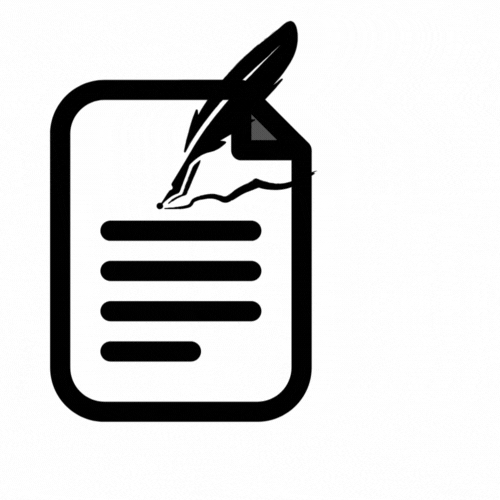A LITERARY STUDY ON THE NATURE OF QUESTION AND ITS TECHNIQUES IN LEARNING
DOI:
https://doi.org/10.31958/jt.v20i1.712Keywords:
Question, Types of questions, Functions of questions, Aims of questions, Questioning techniques, Science questionsAbstract
Questioning is a form of communication that supports learning. Questions asked during learning process can be used to evaluate studentsÔÇÖ understanding on certain concepts. Through questioning, an educator can direct students to think and get involved in learning activities. However, asking good questions for cognitive functions is difficult. Low response from students discourages the educator to either ask or give more questions during the teaching and learning process. In this writing, types of questions, functions of questions, aims of questions, and questioning techniques are discussed. This article further provides sample questions in learning science.
References
Aizikovitch-Udi, A., Clarke, D., & Star, J. (2013). Good questions or good questioning: An essential issue for effective teaching. In CERME8: 8th Congress of the European Society for Research in Mathematics Education. Antalya, Turkey.
Ge, Xun. (2001). Scaffolding Students' Problem-Solving Processes On An Ill-Structured Task Using Question Prompts And Peer Interactions. Thesis in The Graduate School College of Education , The Pennsylvania State University.
Hafidhoh, D.Z. (2014). Improving Students’ Reading Comprehension Ability Of Eighth Grade By Using Questioning Strategy At Mts Sultan Agung Jabalsari Tulungagung In Academic Year. Thesis in English Education Program Faculty Of Tarbiyah And Teacher Training (FTIK), State Islamic Institute (IAIN) Tulungagung.
Ilie, C. (2015). Questions and Questioning. The International Encyclopedia of Language and Social Interaction, First Edition. John Wiley & Sons, Inc.
Kawalkar, A & Vijapurkar, J. (2013). Scaffolding science talk: The role of teachers' questions in the inquiry classroom. International Journal of Science Education, 35(12).
Kipper, H., & Rüütmann, T. (2010). Strategies and techniques of questioning effectuating thinking and deep understanding in teaching engineering at Estonian centre for engineering pedagogy. Problems of Education in the 21st Century, 19, 36-45.
Krathwohl, D. R. (2002). A revision of Bloom's taxonomy: An overview. Theory into practice, 41(4), 212-218.
Lee, Youngju & Kinzie, Mable B. (2012). Teacher question and student response with regard to cognition and language use. Instr Sci (2012) 40, 857–874
Lefrancois, G.R. (2000). Theories of Human Learning: What the Old Man Said. 4th. Wadsworth, a division of Thomson Learning.
Matra, S.D. (2014). Teacher Questioning In Classroom Interaction. Celt, 14(1).
Menezes, L., Guerreiro, A., Martinho, M.H. & Ferreira, R.A.T. (2013). Essay On The Role Of Teachers’ Questioning In Inquiry-Based Mathematics Teaching. Journal of Education, 1(3).
Modaser, M. (2014). Teachers' Questioning and Feedback in Afghan Classrooms. Faculty of Art and Social Science.
Oliveira, A.W. (2010). Improving Teacher Questioning in Science Inquiry Discussions Through Professional Development. Journal of Research In Science Teaching, 47(4), 422–453.
Ormrod, J.E (2012). Human Learning. Pearson Higher Ed.
Peen, T,Y. & Arshad, M.Y. (2014). Teacher and Student Questions: A Case Study in Malaysian Secondary School Problem-Based Learning. Asian Social Science, 10(4): 174-182
Qatipi, S. (2011). Questioning and its true values in the process of learning and teaching to promote critical thinking. Problems of Education in the 21st Century, 38, 73-74.
Rodrigues, S., Taylor, N., Cameron, M., Syme-Smith, L., & Fortuna, C. (2010). Science Education International, 21(1), 3-46.
Sahin, A., & Kulm, G. (2008). Sixth grade mathematics teachers’ intentions and use of probing, guiding, and factual questions. Journal of Mathematics Teacher Education, 11(3), 221-241.
Sardareh, A.A., Saad, M.R.M., Othman, A.J., & Me, R,C. (2014). ESL Teachers’ Questioning Technique in an Assessment for Learning Context: Promising or Problematic?. International Education Studies, 7(9).
Schunk, D.H. (2012). Learning Theories: An Educational Perspective. Pearson Higher Ed.
Smart, J.B., & Marshall, J.C. (2013). Interactions between classroom discourse, teacher questioning, and student cognitive engagement in middle school science. Journal of Science Teacher Education, 24(2), 249-267.
Sulo, S.L.La., Paranto, S., Soedirjo, Waspodo, Mulyoatmojo, D. (1980). Micro-teaching. Depdikbud, Proyek Pengembangan Pendidikan Guru (P3G).
Sunggingwati, D & Nguyen, H.T.M. (2013). Teachers’ Questioning in Reading Lessons: A Case Study in Indonesia. Electronic Journal of Foreign Language Teaching, 10(1).
Vivekmetakorn, C.K & Thamma, M. (2015). Teacher Questioning from a Discourse Perspective. Language Education and Acquisition Research Network (LEARN) Journal, 8(1).
Yip, D Y. (2004). Questioning skills for conceptual change in science instruction. Journal of Biological Education, 38(2), 76-83.
Widodo, A. (2006). Profil pertanyaan dan peserta didik dalam pembelajaran sains. Jurnal Pendidikan dan Pembelajaran, 4(2), 139-148.
Wilen, W. W. (1991). Questioning Skills, for Teachers. What Research Says to the Teacher. 3rd Edition. National Education Association. Washington, D.C.
Downloads
Published
How to Cite
Issue
Section
License
Copyright (c) 2017 Guspatni

This work is licensed under a Creative Commons Attribution-NonCommercial-NoDerivatives 4.0 International License.
Authors who publish with this journal agree to the following terms:
- Authors retain copyright and grant the journal right of first publication with the work simultaneously licensed under a?áCreative Commons Attribution License?á(CC-BY-NC)?áthat allows others to share the work with an acknowledgement of the work's authorship and initial publication in this journal.
- Authors are able to enter into separate, additional contractual arrangements for the non-exclusive distribution of the journal's published version of the work (e.g., post it to an institutional repository or publish it in a book), with an acknowledgement of its initial publication in this journal.
- Authors are permitted and encouraged to post their work online (e.g., in institutional repositories or on their website) prior to and during the submission process, as it can lead to productive exchanges, as well as earlier and greater citation of published work.









